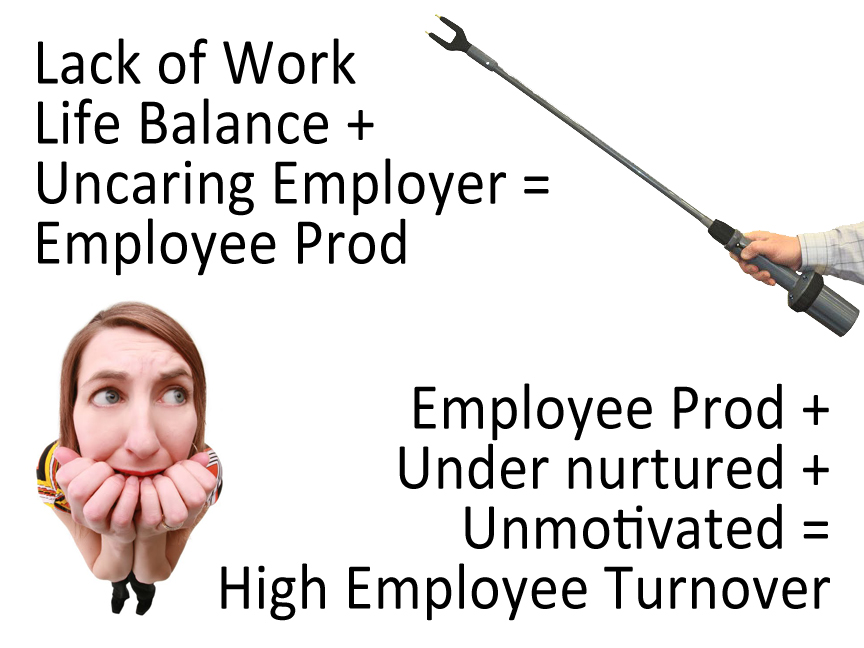Management Monday: Managing Work Life Balance in Organizations
Though the analogy may not be pleasant to think of, one might be justified in comparing an over-worked employee to a cow at a slaughterhouse. Offended? Keep reading. Overworked by the way doesn’t necessarily refer to a unit of time, where exceeding a number yields danger. It is in fact an indicator, a marker only perceptual from the employee’s perspective, where one is no longer productive.
Here is the logic:
- Over-worked employees often stress and put in too many hours of work, which results in lack of sleep. Studies such as Effects of Sleep Deprivation on Dissociated Components of Executive Functioning show that sleep deprivation results in poor performance. What’s this got to do with cows? Well, similar to an over-worked employee, cows get very little sleep, only sleep 3.9 hours a day to be exact.
- Most everyone has heard of a cattle prod, a tool used to strike cattle and force them to get moving. Strict, uncaring and punishment-oriented work-life policies might be considered an “employee prod”. Employees subjected to unreasonable demands will yield lower productivity and likely leave an organization. Cows would if they could.
- We all know cows face a terrible fate at a slaughterhouse. The same can be said for an employee in an Unhealthy Organization. Individuals who don’t experience any work life balance at their jobs become burnt out, less productive and can even become depressed disgruntled, antisocial, and harmful to themselves and other. In other words, those employees suffer emotional or performance death.
No company wants to be thought of as an employee slaughterhouse. Every wise organization knows that business success is built on nurtured and valued human capital. So what does a Work Life Balance friendly organization look like?
Healthy Work Life Balance Practices for Organizations:
1. Offer flexible schedules.
2. Explore flexible Paid Time Off (PTO) alternatives.
3. Offer work life training if needed to make sure manager’s set an example for other employees to follow.
4. Create an environment of open and honest communication.
5. Offer extended unpaid leave for major life events.
6. Don’t expect employees to work 60-70 hour weeks all the time.
7. Listen to employee pleas concerning part-time and full-time positions.
Strengthen your organization and empower your employees by throwing away the prod. Investing in human capital and treating them fairly is the first step for long term success.






